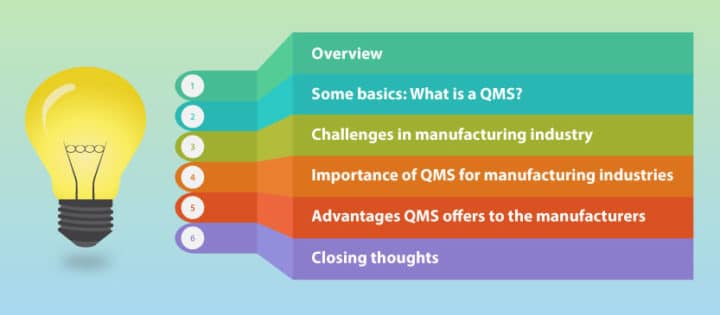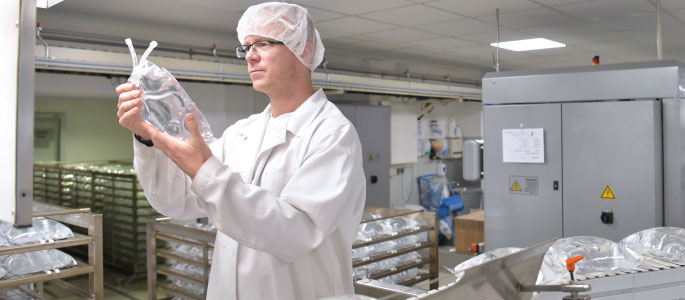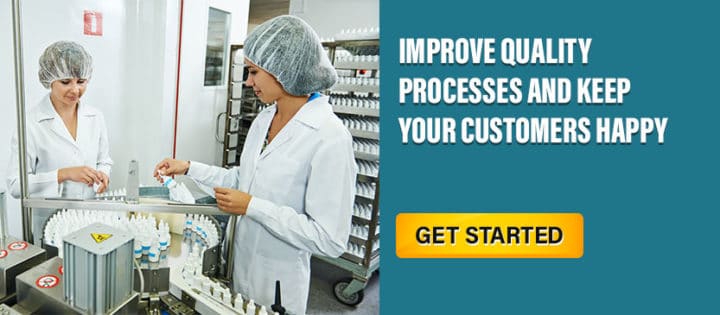What is Quality Management System in Manufacturing Industry?
Manufacturing businesses encounter various challenges, stemming from internal and external factors, often impeding operational control. A robust Quality Management System (QMS) proves instrumental in tackling these challenges, providing enhanced control over every manufacturing process. This blog elucidates how a QMS serves as a solution.

Overview
In the manufacturing sector, businesses share the common goals of cost reduction, waste minimization, and maximizing profitability. While some achieve these objectives, others fall short. Ever wondered what sets them apart?
Among many factors, one crucial determinant is the presence of a quality culture. Successful manufacturing businesses understand that quality management plays a pivotal role in achieving these goals. Also, read: Difference between Quality Management and Quality Control.
Quality management holds particular significance in manufacturing due to heavy regulations and high stakes involving costs and brand reputation. With various challenges emerging from internal and external factors, the need for effective quality management is evident.
Manufacturing businesses require a quality management software tailored to their needs. Such software fosters a culture of quality within operations, aiding in achieving business objectives. But before diving deeper, let’s establish the basics of QMS.
What is a Manufacturing Quality Management System?
A Quality Management System in manufacturing aligns with the broader concept of quality management. Essentially, quality management refers to the methodology enabling businesses to design and deliver products or services that meet specific quality and compliance standards. It ensures the efficiency, effectiveness, and cost-effectiveness of quality processes.
A QMS functions as a tool that harmonizes people, processes, and documentation within an organization. Serving as quality control software for manufacturing, it fosters interaction among these elements.
Primarily, a QMS in manufacturing involves establishing and implementing standard operating procedures (SOPs), business policies, corrective processes, and functions. Its core purpose is to consistently meet customer quality expectations.
At its core, a QMS ensures that products, processes, or systems consistently perform according to their intended functions without deviation.
What are the Challenges in Manufacturing Industry?
The manufacturing industry grapples with numerous challenges including heightened competition, globalizing operations, reducing cycle times for product launches, and maintaining top-notch quality standards. However, among these, the most critical hurdles are meeting regulatory requirements, managing costs, and enhancing customer satisfaction.
Remaining compliant poses a significant challenge for manufacturing businesses. They require a robust system to ensure their products and manufacturing processes comply with regulatory standards.
Cost management is equally daunting, as overlooking quality control can result in substantial losses due to increased manufacturing faults.
Additionally, enhancing customer satisfaction is a perpetual challenge. Businesses must continually improve their products, services, processes, and organizational culture to deliver the highest quality products and services, ensuring customer satisfaction.
In essence, addressing quality-related challenges in manufacturing necessitates effective coordination among people, processes, and technology. This is precisely the purpose of a QMS software!”

Importance of Quality Management Software for Manufacturing
A quality management software tailored for manufacturing plays a pivotal role in addressing the array of challenges mentioned earlier. By offering a streamlined, paperless system, a QMS enables centralized monitoring and management of quality across operations. Consequently, it aids in faster and more efficient production of higher-quality products right from the initial stages.
A robust manufacturing industry quality management software is purpose-built to support continuous improvement and compliance initiatives. Aligned with guidelines like the Good Manufacturing Practice (cGMP) and other regulatory standards, it ensures the manufacturing of high-quality, risk-free products.
Furthermore, a quality software for manufacturing empowers businesses to exert proper control over manufacturing processes and costs. Its functionalities encompass:
- Document Management: Centralizes and manages documents related to quality procedures, policies, and standards.
- Change Management: Handles controlled changes to processes, documents, or systems while ensuring compliance and minimizing disruptions.
- Nonconformance Management: Tracks and manages instances where a product, service, or process doesn’t meet specified requirements or standards.
- CAPA Management (Corrective and Preventive Action): Addresses deviations and takes corrective measures to rectify issues while also implementing preventive actions to avoid recurrence.
- Audit Management: Facilitates planning, scheduling, conducting, and tracking of internal and external audits to ensure compliance.
- Training Management: Manages employee training related to quality procedures and standards.
- Complaint Management: Handles customer complaints, tracks resolution processes, and identifies opportunities for improvement.
- Risk Management: Identifies, assesses, and mitigates risks associated with quality processes, products, or systems.
- Compliance Management: Ensures adherence to relevant regulatory requirements, industry standards, and internal policies.
These functionalities drive substantial value for manufacturing businesses, ensuring efficient operations and adherence to quality and compliance standards.
Advantages of Using Manufacturing QMS Software
The introduction of a manufacturing industry quality management software to any manufacturing business helps them leverage numerous benefits. Some of them are:
- Better Control: Enables comprehensive oversight and control across operations.
- Compliance with Industry Standards: Ensures adherence to industry-specific regulations and quality standards.
- Increased Production: Enhances efficiency, leading to improved production rates.
- Lesser Rework: Reduces the need for reworking or correcting errors, saving time and resources.
- Highest Quality Standards: Enables consistent delivery of high-quality goods.
- Cost Reduction: Minimizes costs linked to low-quality products or processes.
- Operational Excellence: Drives efficiency and effectiveness in operations.
- Exceed Customer Expectations: Improves customer satisfaction by meeting or exceeding their expectations.
- Continuous Improvement: Facilitates ongoing enhancements to product quality and processes.
- Improved Internal Communication: Fosters better communication and collaboration within the organization.
These advantages collectively empower manufacturing businesses to elevate their quality standards, streamline operations, and enhance overall performance.
Closing thoughts
A quality management software tailored for manufacturing encompasses a multitude of functionalities, addressing quality challenges while offering a plethora of benefits. This empowers manufacturing businesses to stay competitive and excel in their industry.
Among these solutions, QualityPro stands out as an exceptional QMS software. Its comprehensive features and value make it indispensable for any manufacturing business. Interested in exploring its capabilities?
Reach out to our in-house quality specialists today to schedule a demo or engage in a no-obligation discussion.






